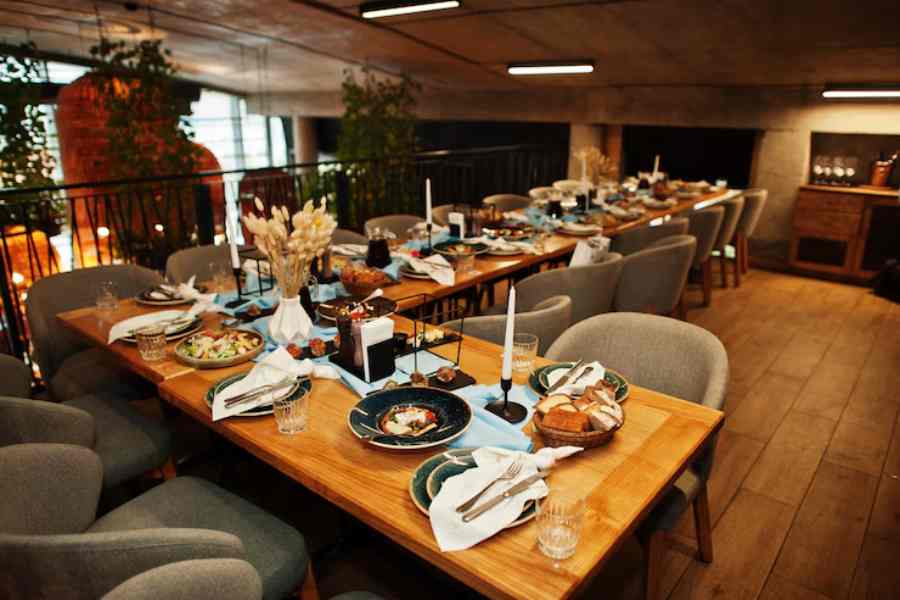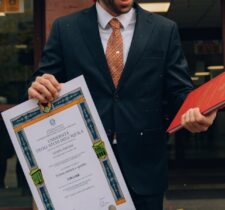Have you ever wondered if you can sue a restaurant for food poisoning? Getting sick after a meal out can be more than just unpleasant—it can also lead to costly medical bills, lost wages, and long-term health issues. Many people aren’t sure whether they can take legal action when food poisoning strikes, but the truth is, you may have the right to sue a restaurant if negligence caused your illness.
Understanding that you can sue a restaurant for food poisoning involves knowing the basics of food safety laws, liability, and how to prove a case. Restaurants have a legal obligation to serve customers safe, uncontaminated food. When they fail to meet that responsibility and someone gets sick as a result, they can be held liable through a personal injury lawsuit.
In this article, we will dive deep into answering the big question: Can you sue a restaurant for food poisoning? We’ll explore when you can sue, how to prove your illness came from a restaurant, the damages you might recover, and the process of filing a claim. We’ll also go over some common challenges people face when trying to sue and how you can increase your chances of winning a case.
By the end of this guide, you will have a clear understanding of your rights and the steps you can take if you suffer from food poisoning due to restaurant negligence.
Can you sue a restaurant for food poisoning?
Yes, you can sue a restaurant for food poisoning if you can prove the illness was caused by contaminated food they served. Restaurants are legally obligated to provide safe, clean food. If negligence can be shown, such as improper handling or unsanitary conditions, you may be eligible for compensation covering medical expenses, lost income, and other damages.
How to Prove a Restaurant Is Responsible for Food Poisoning
When it comes to can you sue a restaurant for food poisoning, it’s essential first to understand your legal rights. Food poisoning cases typically fall under the realm of personal injury law. Restaurants have a clear duty of care to their customers, meaning they are legally obligated to serve safe food, properly stored and prepared in sanitary conditions. If a restaurant serves contaminated or mishandled food and you become ill as a result, you may have a strong legal claim against them.
Proving liability involves more than just showing you were sick—it requires demonstrating that the restaurant failed to meet established health and safety standards, and that failure directly caused your illness. This can be challenging because symptoms often don’t appear until hours or even days after the contaminated meal was consumed.
Common bacteria responsible for foodborne illnesses include Salmonella, E. coli, Listeria, and Norovirus, which are often caused by undercooked food, cross-contamination, or poor hygiene practices. In many states, such as California, strict liability laws apply to food poisoning cases, meaning you only need to prove that the food was contaminated and caused your illness, not that the restaurant was negligent. Gathering evidence such as medical records, witness statements, and even leftover food samples can significantly strengthen your case and improve your chances of winning a claim.
When Can You Sue a Restaurant for Food Poisoning?
Not every case of food poisoning automatically leads to a lawsuit. To successfully bring a claim, certain conditions must be met that connect the restaurant’s negligence to your illness.
If You Can Prove the Food Was Contaminated
To have a successful claim, you must be able to show that the food you ate at the restaurant was contaminated and directly caused your illness. This connection is crucial in any food poisoning lawsuit. Evidence such as medical records, lab results, or even the contaminated food itself can help establish a direct link between your sickness and the restaurant’s negligence.
If Other Customers Were Also Affected
When multiple customers become ill after eating at the same restaurant, it significantly strengthens your case. Mass outbreaks suggest a pattern of negligence or unsanitary conditions. If you are not the only one affected, your claim becomes much more credible and harder for the restaurant to dismiss as an isolated incident.
If There Was a Violation of Health Codes
Restaurants are subject to regular health inspections, and violations of health and safety regulations can serve as robust evidence in your case. If the restaurant has a history of failed inspections, pest infestations, improper food handling, or other critical violations, it can show that they failed to uphold basic food safety standards.
If You Suffered Financial Loss
If your food poisoning resulted in medical expenses, lost wages, or additional costs like medication or rehabilitation, you have more substantial grounds to seek compensation. Demonstrating financial harm caused by your illness is essential in proving the damages you suffered.
If You Act Within the Statute of Limitations
Every state enforces a deadline, known as the statute of limitations, for filing a lawsuit. Typically, this period ranges from one to two years from the date of the incident. Filing your claim promptly ensures you preserve your right to seek justice and compensation.
How to Build a Strong Food Poisoning Lawsuit
If you’re wondering can you sue a restaurant for food poisoning, acting quickly and gathering strong evidence is crucial. Building a successful case often hinges on proving that the restaurant’s negligence directly caused your illness. Since food poisoning symptoms can appear hours or even days after consumption, detailed documentation becomes even more critical. The more evidence you can collect, the stronger your lawsuit will be. Proper steps at the beginning can make a significant difference in whether you can claim compensation for your medical expenses, lost wages, or emotional distress. Acting fast ensures you capture the key details before they are lost, giving you the best chance of holding the restaurant accountable.
Here’s what you should do if you intend to sue:
- Seek Immediate Medical Treatment: Medical records will help establish the link between your illness and the contaminated food. A doctor’s diagnosis can serve as critical proof.
- Report the Incident: Contact your local health department and file a formal complaint about the restaurant. Health inspections may reveal violations that support your case.
- Save Any Evidence: Keep any leftover food, restaurant receipts, or packaging that can connect you to the meal you consumed.
- Document Your Symptoms: Maintain a timeline detailing when symptoms began, what you ate, and any conversations you had with the restaurant or healthcare providers.
- Consult a Personal Injury Lawyer: An attorney experienced in foodborne illness cases can guide you through the legal process and improve your chances of success.
How Much Compensation Can You Get for Food Poisoning?
If you successfully prove your case, the amount of compensation you can receive for food poisoning largely depends on the severity of your injuries and the financial impact it had on your life. Victims are typically entitled to recover damages that cover a wide range of expenses. These can include medical bills, hospitalization costs, prescription medications, ongoing treatments, lost wages from missed work, and compensation for pain and suffering caused by the illness.
In more serious cases, where food poisoning leads to long-term health complications such as organ damage, chronic illness, or disability, the settlement amount can be significantly higher. Some victims may also recover damages for emotional distress caused by the trauma of the incident.
Additionally, if it is proven that the restaurant acted with gross negligence or knowingly served contaminated food, courts may award punitive damages. These are meant to punish the restaurant and deter similar behavior in the future. Each case is unique, but a strong claim can result in a substantial financial recovery.
Challenges You Might Face in a Food Poisoning Lawsuit
While pursuing a lawsuit for food poisoning may seem straightforward, several challenges can complicate your case. Understanding these obstacles helps you prepare and strengthen your chances of success if you’re wondering if you sue a restaurant for food poisoning.
- Difficulty Proving the Source: One of the biggest hurdles is demonstrating exactly which food item caused your illness. Because meals often consist of multiple dishes and ingredients, pinpointing the contaminated item can be difficult without laboratory testing or confirmation from a health investigation.
- Delay in Symptoms: Food poisoning symptoms do not always appear immediately. It can take several hours or even days after consuming contaminated food for symptoms to develop. This time gap often makes it harder to establish a direct connection between the restaurant’s food and your illness.
- Other Possible Sources of Contamination: Restaurants often defend themselves by suggesting that the food you consumed elsewhere could have caused your sickness. If there were other meals you ate during the same timeframe, the restaurant may argue it was not their food that made you ill.
- Lack of Evidence: Without strong supporting evidence, such as medical records, test results, or witness testimony, proving your case becomes significantly harder. Solid documentation plays a key role in strengthening a food poisoning lawsuit.
- Statute of Limitations: Every state enforces a time limit for filing personal injury claims. If you miss the statute of limitations deadline, you may lose your right to sue, regardless of how strong your case might have been.
In Closing
Knowing can you sue a restaurant for food poisoning empowers you to take action if you become ill from contaminated food. Restaurants are responsible for maintaining strict safety standards, and when they fail, legal options are available to help you recover damages. Taking swift action, gathering strong medical evidence, and working with an experienced attorney are key steps toward building a successful case. Although challenges like delayed symptoms and proof issues exist, many victims can secure fair settlements or verdicts. Staying vigilant about your rights not only protects your health but also holds negligent businesses accountable for their actions. If you ever face food poisoning from a restaurant, being informed can help you fight back and seek the justice you deserve.
FAQ’s
Can you sue a restaurant for food poisoning without a receipt?
Yes, you can still sue without a receipt. Other evidence, like credit card records, witness testimonies, or even surveillance footage, can help prove your visit.
How do you prove food poisoning came from a restaurant?
You can prove it by using medical records, health department reports, leftover food samples, and witness statements from others who ate the same food and got sick.
How much can you get if you sue a restaurant for food poisoning?
The compensation you may receive varies but typically covers medical expenses, lost wages, pain and suffering, and possibly punitive damages if negligence is extreme.
How long do you have to sue a restaurant for food poisoning?
Most states allow one to two years from the date you became ill to file a lawsuit, depending on their statute of limitations for personal injury claims.
What should you do immediately after food poisoning from a restaurant?
You should seek medical care right away, document your symptoms and meals, report the incident to your local health authorities, and speak with a personal injury lawyer.








